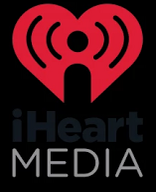According to BloombergBusiness, the plan marks the company’s latest attempt to rein in the debt it took on in its 2008 acquisition by private equity firms Bain Capital Partners LLC and Thomas H. Lee Partners LP, a $24 billion deal that came to symbolize the excesses of the pre-crisis buyout boom.
iHM’s struggles reflect the broader challenges facing traditional radio in the digital age. As online music services surge, spending on advertising for radio is smaller than it was in 2008, according to the Radio Advertising Bureau.
The radio and billboard company was bought by Bain and Thomas H. Lee as the recession hit and credit markets froze. The deal, which took two years to complete, was in and out of court and the price was re-negotiated at least once.
Clear Channel’s name changed to iHM in 2014 to reflect the title of its streaming music application and to rebrand as a media company. That app surpassed 80 million registered users, the company said last month.
Yet iHM’s legacy businesses -- 850 radio stations and billboards -- still contribute the bulk of its revenue, and those sales aren’t growing quickly. iHM is projected to report sales of $6.2 billion in 2015, a 1.1 percent drop from 2014.
 |
| Bob Pittman, Chairman-CEO |
iHM has spent the past eight years refinancing and restructuring that debt -- without materially reducing the amount. It has pushed back the payments instead.
To boost its cash, IHeart has been tapping its healthier divisions. In December, Clear Channel International BV raised $218 million to help fund a special dividend for the parent company. Clear Channel Outdoor raised more than $566 million in January by selling billboards in eight markets to Lamar Advertising Co. and other buyers.
“It’s a case of burning your sofa to heat up the house,” Philip Brendel, a credit analyst with Bloomberg Intelligence. “It’s not necessarily a good idea but you’re running out of options.”
Read More Now


No comments:
Post a Comment
Note: Only a member of this blog may post a comment.